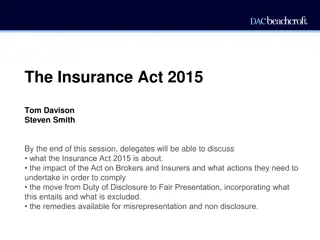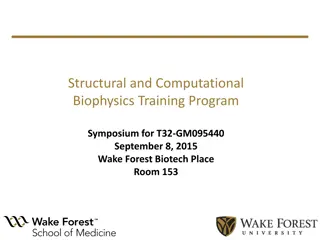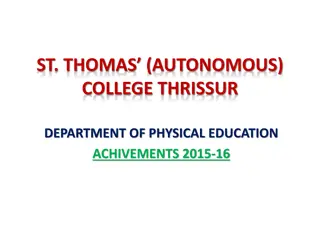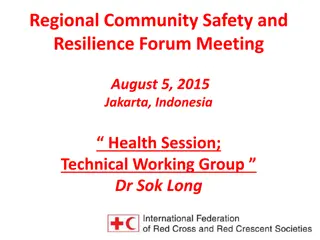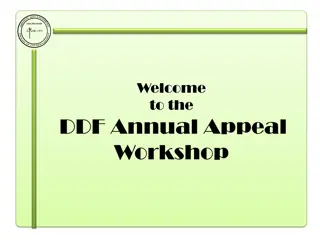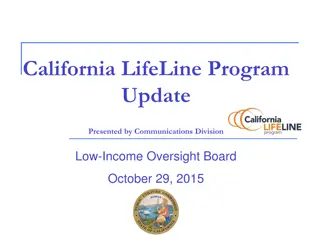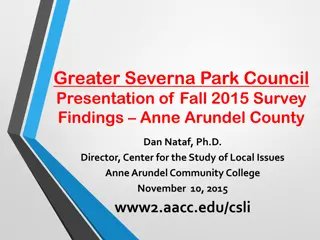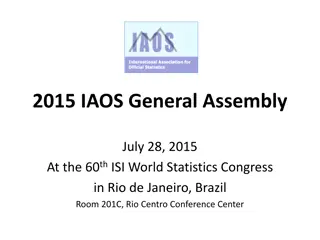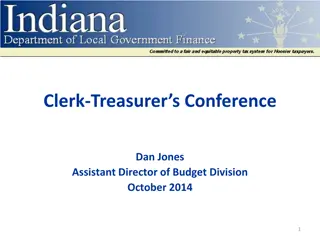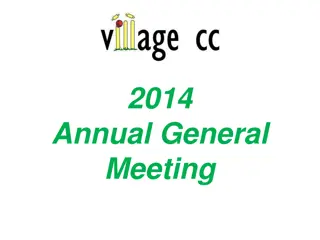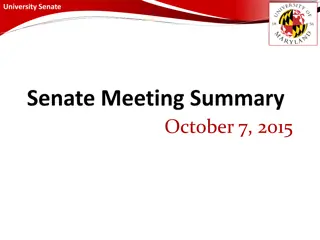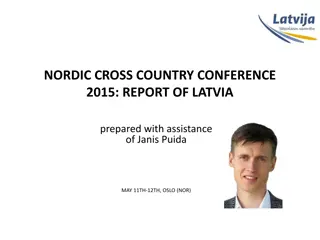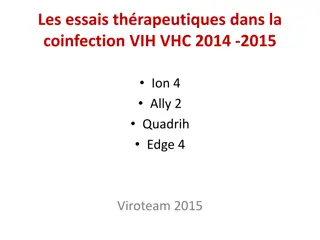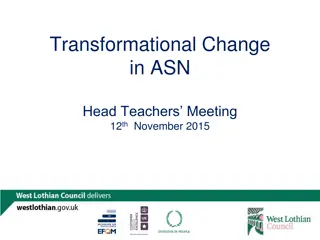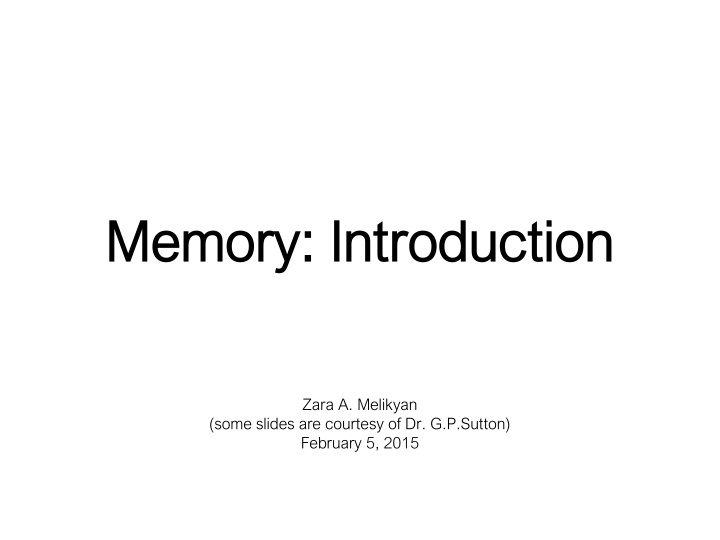
Understanding Memory: Definition, Types, and Models
Explore the intricacies of memory, including its definition, subtypes, processes, clinical examples of memory loss, and temporal memory organization. Delve into iconic, echoic, haptic sensory memory, short-term memory, long-term memory, and various memory models. Understand declarative versus nondeclarative memory and the types of long-term memory. Discover the complexities of memory encoding, storage, retrieval, and use in daily activities.
Download Presentation

Please find below an Image/Link to download the presentation.
The content on the website is provided AS IS for your information and personal use only. It may not be sold, licensed, or shared on other websites without obtaining consent from the author. If you encounter any issues during the download, it is possible that the publisher has removed the file from their server.
You are allowed to download the files provided on this website for personal or commercial use, subject to the condition that they are used lawfully. All files are the property of their respective owners.
The content on the website is provided AS IS for your information and personal use only. It may not be sold, licensed, or shared on other websites without obtaining consent from the author.
E N D
Presentation Transcript
Memory: Introduction Memory: Introduction Zara A. Melikyan (some slides are courtesy of Dr. G.P.Sutton) February 5, 2015
Lecture Plan: Lecture Plan: Memory: definition, subtypes and processes Clinical examples of memory loss - patients H.M. & C.W. What is memory loss Memory: assessment Example of progressive memory loss - Alzheimer s dementia
Memory: Definition Memory: Definition Memory is the process in which information is: - encoded encoded - receiving, processing, combining information, - stored stored - creation of permanent record of encoded information, - retrieved retrieved - calling back the stored information to use in activity
Temporal Memory Organization Temporal Memory Organization Sensory Memory Sensory Memory - limited capacity 12 elements (G. Sperling), limited duration (hundreds of milliseconds). Registers all the sensory information. - Iconic - Echoic - Haptic Short Short- -Term Memory Term Memory - limited capacity (7+/-2, or 4-5 elements), limited duration (18- 30 sec). Registers information to which attention is paid. Transient patterns of neuronal connection in prefrontal & temporal lobes, hippocampus essential for information consolidation from STM to LTM. Information is rehearsed and chunked Long Long- -Term Memory Term Memory - close to unlimited capacity, unlimited duration. More stable and permanent changes in neuronal connections throughout the brain.
Memory Models Memory Models Atkinson Atkinson- -Shiffrin Model (1968) Shiffrin Model (1968) Baddeley & Hitch Model of Working Memory (1974) Baddeley & Hitch Model of Working Memory (1974)
Types of Long Types of Long- -Term Memory Term Memory LTM Declarative Nondeclarative (Procedural) Episodic Semantic Skill learning Priming Conditioning
LTM: LTM: Declarative vs. Nondeclarative Declarative vs. Nondeclarative Declarative memory Declarative memory - Memory that can be stated or described - Capital of Italy Nondeclarative (Procedural) Nondeclarative (Procedural) - Memory about perceptual/motor procedures - Demonstrated via performance (not conscious recollection) - Riding a bicycle
Declarative: Declarative: Episodic vs. Semantic Episodic vs. Semantic Episodic Episodic - Detailed autobiographical memory -15th birthday party Semantic Semantic - Generalized declarative memory - Facts and information acquired through learning - Capital of Italy
Nondeclarative: Nondeclarative: Skill Learning vs. Priming vs. Conditioning Skill Learning vs. Priming vs. Conditioning Skill Learning Skill Learning Learning how to perform a task by repeating a process May include: - Sensorymotor skills (mirror tracing) - Perceptual skills (reading mirror-reversed text) - Cognitive skills (planning and problem-solving)
Nondeclarative: Nondeclarative: Skill Learning vs. Priming vs. Conditioning Skill Learning vs. Priming vs. Conditioning Priming Priming - Change in how you process a stimulus (e.g. word, picture) because you have seen it (or something similar) previously - Does not require declarative memory (intact in H.M.)
Nondeclarative: Nondeclarative: Skill Learning vs. Priming vs. Conditioning Skill Learning vs. Priming vs. Conditioning Conditioning Conditioning Involves relationships between events Associative learning - Classical conditioning Classical conditioning. Association is formed between two previously unrelated stimuli. Pavlov s dogs. - Instrumental/operant conditioning Instrumental/operant conditioning. Association is formed between behavior and cosenquences. Skinner box. http://www.youtube.com/watch?v=TtfQlkGwE2U
Patient 1: Patient 1: Henry Gustav Molaison (1926 Henry Gustav Molaison (1926- -2008) 2008) The case of H.M. is widely studied and published on. Played important role in cognitive neuropsychology of memory; Suffered intractable epilepsy: partial seizures, after 16y.o. tonic- clonic seizures; Source of epileptic discharge - left and right medial temporal lobes; 1953 (27 y.o.) bilateral medial temporal lobe resection - hippocampi, amygdalae, enthorhinal cortex, anterolateral temporal cortex. Most structures were not functional;
Patient 1: Patient 1: Henry Gustav Molaison (1926 Henry Gustav Molaison (1926- -2008) 2008) After the surgery: epilepsy is controlled, severe memory impairment: Severe anterograde amnesia Severe anterograde amnesia: explicit & semantic memory; Moderate temporary Moderate temporary- -graded retrograde amnesia graded retrograde amnesia: could not remember most events 1-2 years prior and some events 11 years prior to surgery; Intact: working memory, procedural memory; Intact: working memory, procedural memory; At the end of life: worked crossword puzzles, able to fill in answers to cues related to pre-surgery knowledge, able to modify old memories with new information; Resided in care institute 1953-2008. Sliced brain in UCSD.
Patient 2: Patient 2: Clive Wearing (born 1938) Clive Wearing (born 1938) Accomplished British musicologist, conductor, keyboardist; In 1985 (47y.o.) contracted Herpesviral encephalitis (Herpes simplex virus) that attacked his CNS: hippocampus (transfers STM to LTM), frontal lobes; Profound total amnesia: - severe anterograde amnesia severe anterograde amnesia (unable to form new memories, his memory lasts 7-30 seconds), - moderate moderate- -severe retrograde amnesia severe retrograde amnesia (cannot recall aspects of past memories, knows that he has children but does not remember their names, loves his second wife), - unable to associate memories effectively, - unable to control emotions (labile mood) (e.g. shakes spasmodically after music stops) Intact: procedural memory (knows how to play the piano, conduct an orchestra); Can learn new practices and very few new facts not from episodic memory but by procedural memory (e.g. after having watched a video multiple times he is able to anticipate parts of it). http://www.youtube.com/watch?v=Lu9UY8Zqg-Q&feature=related http://www.youtube.com/watch?v=xCyvzI2aVUo&feature=relmfu https://www.youtube.com/watch?v=9BrCBq2FY_U
Memory Loss Memory Loss Amnesia Amnesia, from Greek a - without, mnemi" - memory - Severe memory impairment - Usually due to injury or disease Retrograde amnesia Retrograde amnesia Loss of memories prior to an event. Disruption of memory consolidation Anterograde amnesia Anterograde amnesia Inability to form new memories (e.g. H.M., C.W.)
Study of Memory Study of Memory Tests: - Verbal Verbal: word lists, paragraphs - Visual Visual: shapes, objects, scenes - Tactile, audial, memory for smells Tactile, audial, memory for smells Learning and immediate retrieval, delayed recall, recognition Recency and Primacy Effects
Progressive Memory Loss: Alzheimers Progressive Memory Loss: Alzheimer s Dementia Dementia Dementia from Latin: de - to depart, mens - mind, being out of one's mind. General term that describes a wide range of symptoms associated with a decline in mental ability severe enough to reduce a person's ability to perform everyday activities. These symptoms: - Are not present since birth - Are a change from previous baseline mental function - Last more than six months - Not associated with a loss/alteration of consciousness - Not due to other medical conditions (e.g. depression) - Progressive Dementias have different etiologies: primary - organic brain degeneration (AD), secondary (TBI, infection, intoxication, etc.). Dementia is very wide spread due to increased life expectancy and decreased birth: 2010 worldwide 35.6 million, in 2030 65.7 million, in 2050 115.4 million; AD 50-75% of all types of dementia; Associated with significant cost: lost jobs for patients and caregivers, medical supplies and drugs, home modification, care, nursing home
Progressive Memory Loss: Alzheimers Progressive Memory Loss: Alzheimer s Dementia Dementia Alzheimer s Dementia named after Aloysius (Alois) Alzheimer, a German psychiatrist and neuropathologist who identified the first case of the disease in 1906; His patient Mrs. Auguste Dete, a 51 year old woman experiencing symptoms of memory loss, unusual behavioral changes, hallucinations, delusions, and impaired social functioning; Post-mortem brain examination by Dr. Alzheimer revealed AD markers: amyloid plaques, neurofibrillary tangles, and arteriosclerotic alterations of brain matter.
Alzheimers Dementia: Symptoms Alzheimer s Dementia: Symptoms Symptoms worsen over time. Symptoms may vary but, at least two of the following mental functions must be significantly impaired: Domain Symptoms First short-term memory: keeping track of purse, wallet, keys, paying bills, planning meals and cooking, remembering appointments, where car is parked, the route to home Long-term memory: own biography, names and faces of family members Memory Lose the ability to perform familiar tasks, plan activities, and draw simple conclusions from facts Abstraction, planning Communication, language, comprehension Inability to understand instructions, follow the logic of moderately complex sentences. Later: difficulty understanding own sentences, difficulty forming thoughts into words Do not recognize consequences of own actions, unable to evaluate appropriateness of behavior, level of risk. Behavior may become rude, overly friendly, aggressive. Personal hygiene may be ignored. Poor judgement Impaired orientation To time (date, time), place, person Decreased attention, increased restlessness Quickly begin activity, quickly loose interest/wander (safety problems) Visual perception Loose interest in once-pleasurable activities, become passive, depressed (20-30%), anxious (20%). Delusions, suspicion, paranoia, hallucinations. Sleep disturbances: insomnia, sleep interruptions. Disinhibition, impulsivity, agitation, balance problems, tremor, troubles eating Behavioral changes, psychosis
Thank you! Thank you!


